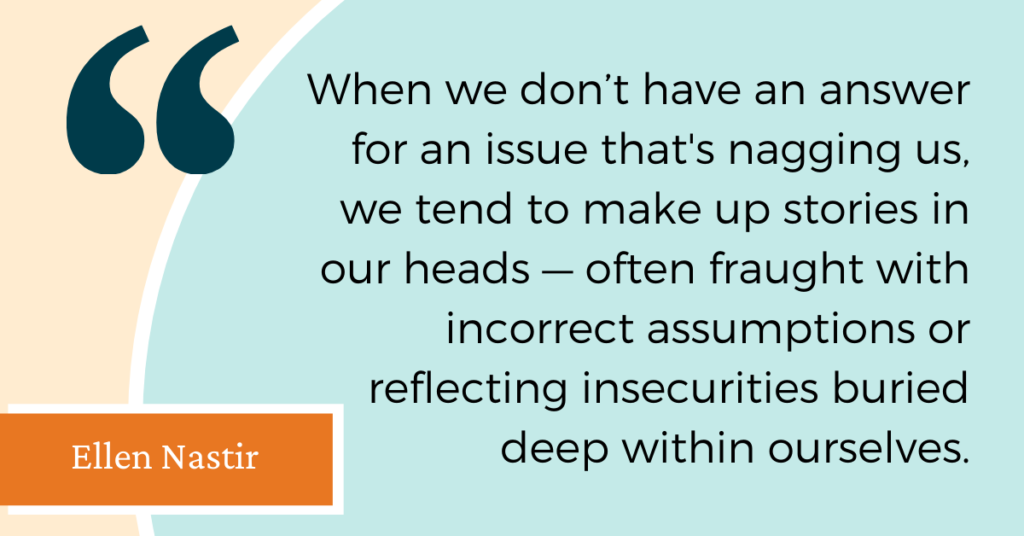One of the best gifts I received during 2020 was reconnecting with a long-lost friend on the final day of that challenging year. Time melted away as we spoke on the phone for more than an hour, catching up on nearly two decades as if no time had passed at all.
While the reason we lost touch doesn’t matter, what does matter is the story I told myself about it.
After losing contact with my friend for many years, I found her on Facebook. I sent her several messages but did not receive a response. I told myself she didn’t want to communicate with me and wasn’t interested in being my friend. In my desperate desire to have a reason for her unresponsiveness, I concocted a story in my head that put me at fault — she must be sick of hearing about the current challenges in my life and need a break.
At the time, it never dawned on me that she had a lot going on in her personal life that took her attention away from social media and being responsive. I was so focused on myself that I didn’t stop to consider the other reasons for her silence. When we don’t have an answer for an issue that’s nagging us, we tend to make up stories in our heads — often fraught with incorrect assumptions or reflecting insecurities buried deep within ourselves.

This time, my friend reached out to me, I replied, she responded, and the rest is history.
Creating internal stories about interactions or situations, especially those at work, can be detrimental to our emotional health, team morale and productivity. You might tell yourself that the curtness of the email from your supervisor means she doesn’t value your work when in reality, she is struggling to balance responsiveness while juggling two kids at home who need help with virtual school.
Have you ever made up a story because you wanted to assign a reason to something that’s actually far from the truth? Even as a life coach and positive psychology expert, I can still fall back into taking things personally. It’s called being human.
The next time you find yourself beginning to hatch your interpretation of why someone responded the way they did, reach out to that person to check in on them. Ask them how they are doing and gauge if there is anything you can do to help or support them. That might just be the opening to a renewed or deeper relationship.





